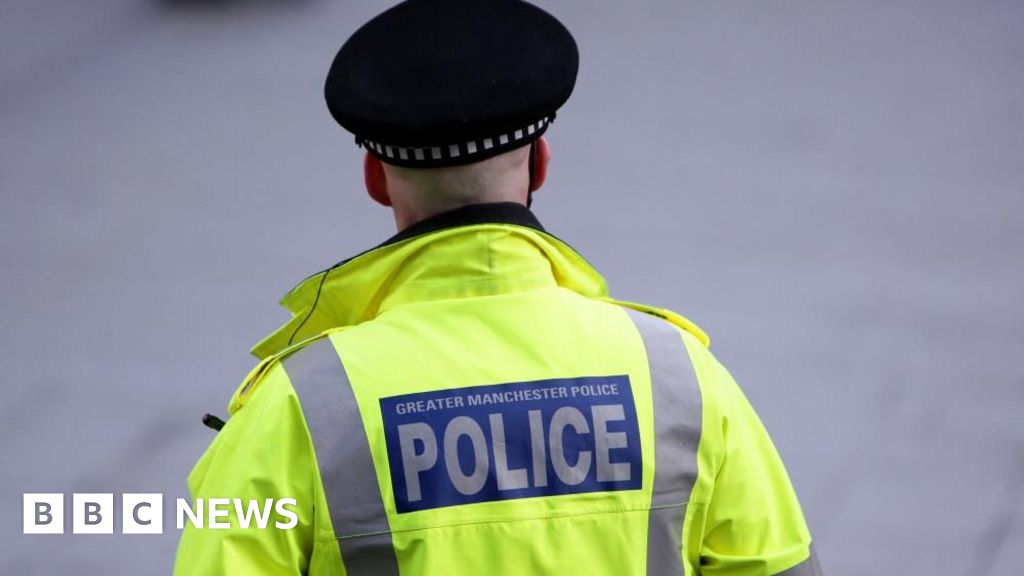Vanessa ClarkeEducation reporter
 Getty Images
Getty ImagesA decision by the NHS to redeploy health visitors during the pandemic was “fundamentally flawed” and “children were harmed” as a result, the head of a health visiting charity has told the Covid inquiry.
Many health visitors were sent to work in other parts of the NHS at the beginning of the pandemic.
Alison Morton, CEO of the Institute of Health Visiting, told the inquiry it was “inappropriate” as they “were needed most on their own front line”.
NHS England’s Chief Nursing Officer Duncan Burton told the inquiry its response to safeguarding did not stop throughout the pandemic despite staff being diverted to critical services.
Health visitors in almost two thirds of trusts in England were redeployed in March 2020, according to research by University College London.
The intention was that they would go to work in hospitals to support acutely ill patients but some were sent to do administration, to deliver parcels and to answer telephones, the inquiry heard.
Some health visitors who remained in post were left with case loads of 750 children or more, way above the recommended 250, evidence provided by Prof Catherine Davies, of Leeds University, to the inquiry showed.
“We let families down”, Ms Morton told the inquiry, saying protection was not afforded to babies and that “some children paid the highest price”.
The inquiry was shown research by the child safeguarding review practice panel which identified Covid adaptions, such as virtual visits as opposed to home visits by health visitors, as factors in the deaths and serious incidents of some children.
Children like Star Hobson and Arthur Labinjo-Hughes – who were both killed by their guardians during the pandemic – hit the headlines but there were many others, Ms Morton told the inquiry.
“Children were being harmed by these practices,” she said.
“It had life-changing and life-ending consequences for these children and they were the canary in the coalmine and we needed to listen to them and make their voices count even in their deaths”.
“For me, it was the most sad part of the pandemic, how we let those children down”, Ms Morton added.
The Institute of Health Visiting – a charity and professional body that works to strengthen the quality and consistency of health visiting practice – said it was in regular contact with the government in the summer of 2020 raising concerns.
It said a letter was eventually sent by the Chief Nursing Officer for England to trusts in October 2020 saying redeployments must end.
The body also had to make “a strong intervention” for there not to be another redeployment in December 2020, the inquiry was told.
The inquiry is due to hear evidence from those who were in government at the time in the next two weeks.
Earlier, Duncan Burton, the Chief Nursing Officer for England told the inquiry, at the start of pandemic, the NHS was dealing with a new virus and staff had to be freed up to help with critical services.
He said NHS England’s response to safeguarding activity did not stop throughout the pandemic but it did change.
“For example, we made sure that the staff in testing centres were trained around safeguarding and what the things they might need to look for.
“And as more clinical contacts happened online, we needed to make sure that the kind of guidance around online factored in the safeguarding needs of children.”
The inquiry also heard about the decision by the NHS to keep children out of the healthcare system unless essential and to pause elective procedures for children in March 2020.
The NHS was focusing on freeing up beds for critical care, the inquiry heard, and Mr Burton said “we had to focus on that”.
They did not suggest stopping anything that was urgent, Mr Burton said but “there was a balance of prioritisation”.
Children’s waiting lists grew at twice the rate of adult list during the recovery period after the pandemic, NHS England data which was shown to the inquiry indicated.
Mr Burton’s evidence noted that children’s procedures being seen “as less of a priority compared to, for example, adult cancer treatment” was one of the reasons for the rise in children’s waiting lists size.
He said the fact that children’s operations are mainly done in more specialist hospitals and there is a smaller workforce might also have added to delays.
Some of the biggest waiting lists are for speech and language appointments – with schools seeing a huge increase in students needing additional help.
Children were “hugely and in some cases irretrievably damaged” by the indirect consequences of the pandemic, Prof Steve Turner, from the Royal College of Paediatrics and Child Health, told the inquiry.
“They are 25% of the population and get 11% of the NHS spend.”
They are not treated equally in our society and became a lower priority in the pandemic and in the recovery period, Prof Turner said.
This part of the Covid inquiry is looking at the impact of the pandemic on children and young people, and whether they were considered in key decisions made by government.



